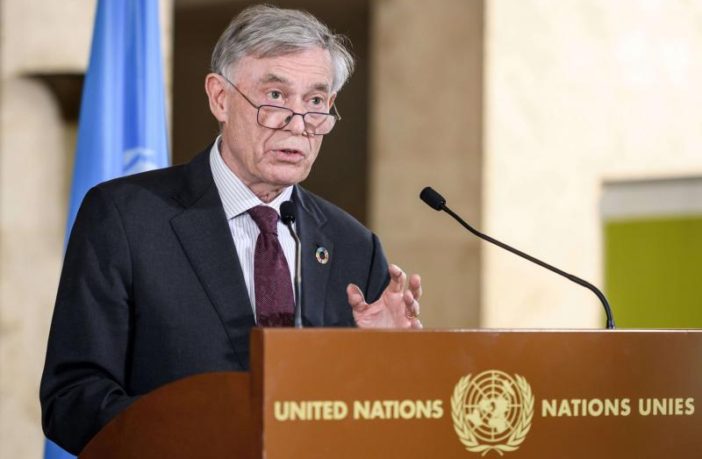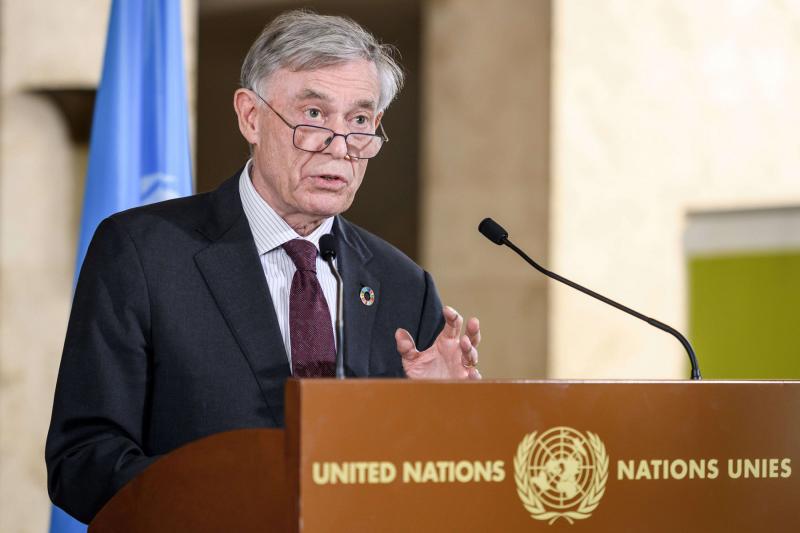Arab Weekly
Saad Guerraoui
The second round of UN-sponsored talks on the Western Sahara dispute ended with no clear resolution but there was agreement to continue negotiations.
UN Special Envoy Horst Kohler was joined by the foreign ministers from Morocco, Algeria and Mauritania along with the chief negotiator for the Polisario Front separatist movement in Switzerland for closed-door talks March 21-22.
“I would like to commend all delegations for displaying their commitment and engagement in reconvening on this occasion,” Kohler said during a news conference at the end of the meetings.
The delegations agreed to convene for another round of talks but no date was announced.
Kohler said the latest meeting was meant “to consolidate my positive dynamic created by the first meeting to start approaching more substantive questions.” He acknowledged that the situation “is not and will not be easy.”
“Nobody should expect a quick outcome because many positions are still fundamentally diverging,” he warned, adding that mutual engagement between the involved parties was critical to dealing with the dispute’s more controversial elements.
He encouraged delegations to make good faith gestures and engage in concrete actions that go beyond the negotiating table. “Let’s not lose sight that the people of Western Sahara need and deserve this conflict to end,” he said.
The delegations issued a statement in which they said they were committed to “seriously and respectfully engage” in negotiations. They also said more trust needs to be built.
Delegations discussed how to reach a solution to the conflict that respects the welfare of the people of the Western Sahara, under the framework of UN Security Council Resolution 2440, a statement read out by Kohler said.
The Polisario Front said in a statement posted on Twitter that the only practicable, realistic and enduring solution is one that grants the people of Western Morocco the right to democratically decide their own future with no preconditions.
“Our goal for the next round of talks is to build on the elements needed for a just and enduring solution that respects the fundamental rights of the Sahrawi people,” the Polisario Front said.
Sources in Geneva reported that the Moroccan delegation, headed by Foreign Minister Nasser Bourita, said self-determination for the Western Sahara was confined to conditions established in Resolution 2440, which are “realism, pragmatism and sustainability.”
The Algerian and Polisario delegations struck at what they called “a selective and truncated reading of self-determination.”
Direct talks between Morocco and the Polisario Front broke down six years ago. The first round of UN-led talks on the Western Sahara took place last December in Geneva.
Morocco annexed Western Sahara after Spain withdrew from the area in 1975 and considers it to be an integral part of the kingdom. The Algeria-backed Polisario Front began an armed conflict with Morocco in pursuit of an independent state. The fighting lasted until a UN-brokered ceasefire in 1991.
Rabat has proposed a form of autonomy under Moroccan sovereignty for the territory. The Polisario Front, however, insists on the Sahrawi people’s right to full self-determination through a UN-monitored vote.
The second round of talks came as the mandate for the UN Mission for the Referendum in Western Sahara (MINURSO), one of the United Nations’ oldest peacekeeping missions, which has overseen the ceasefire in Western Sahara since 1991, is to end April 30.
The United States warned that MINURSO’s mandate would no longer be automatically renewed. Other Security Council members, including long-time Moroccan ally France, are pushing for more long-term engagement on the issue.
A detailed document made public by the US State Department on March 18 revealed that Washington had opposed a referendum in the disputed territory, suggesting that Morocco extend autonomy to the region in response to former UN envoy James Baker’s proposal.
The document, titled “Sahara Policy History,” was written by former Moroccan Ambassador to the United States Aziz Mekouar and submitted to the US State Department in 2009 ahead of former Secretary of State Hillary Clinton’s visit to Morocco.








